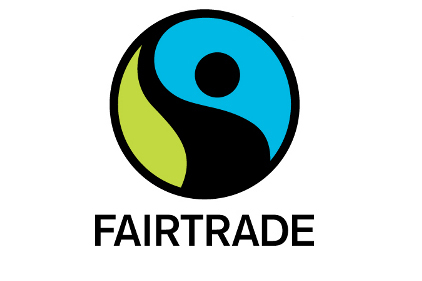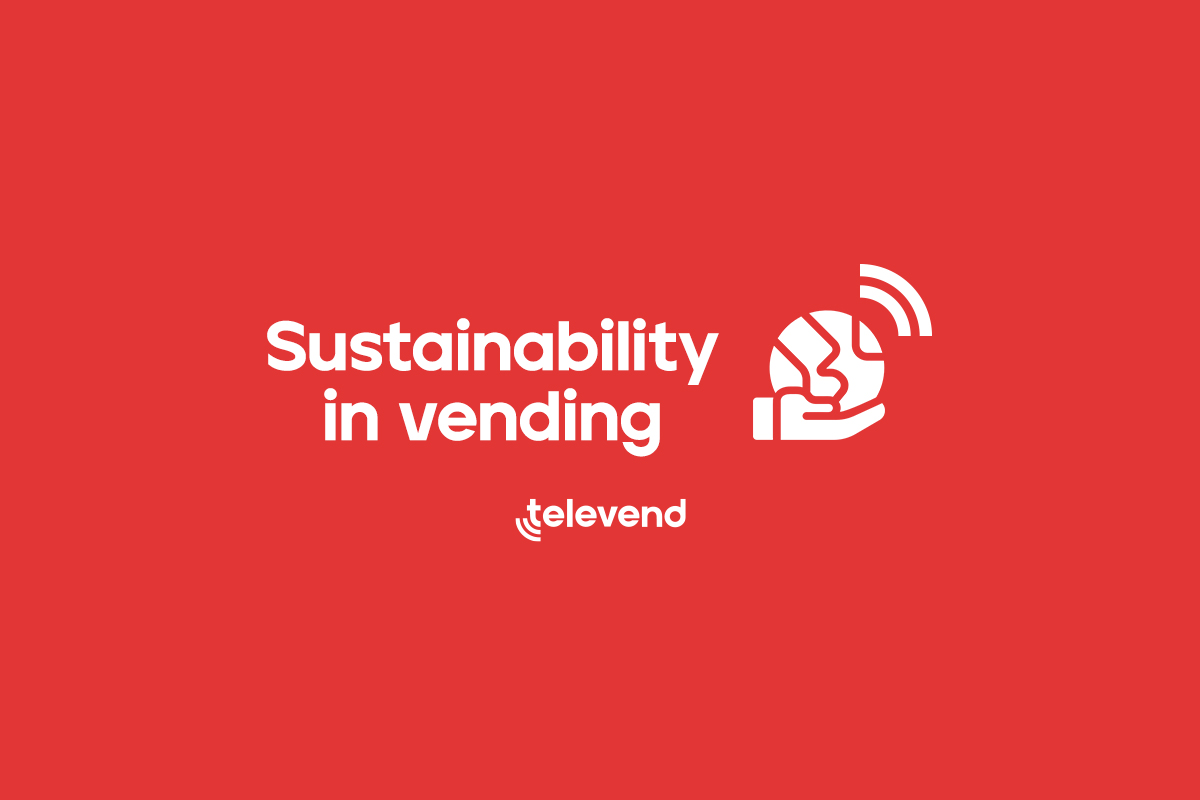Sustainability is a word you hear a lot these days. But why is it so important, and what should the automated retail industry keep an eye on?
Sustainability – a key to the pockets of Gen Z consumers
Generation Z or shorter – Gen Z, the new generation of consumers born between 1997 and 2012 is on the rise. According to Bloomberg, in 2019, Generation Z surpassed Millennials, comprising 32% of the global population with almost 2 billion. Moreover, as of 2020, they are making up 40% of global consumers, and by 2030, Gen Z will contribute 30% of the global workforce. These statistics prove that Gen Z is the single largest consumer group in the world and is not to be ignored!
Care for the environment, human rights, fair trade, and generally sustainability of how companies do business are at the core of their values. They appreciate ethically made, marketed, and delivered products and more importantly, are willing to spend 50-100% more on those products compared to other generations.
Introducing sustainability into your vending business
Looking at these numbers, it’s pretty evident that automated retail too will have to adapt and adjust almost everything it does to satisfy the thirst and hunger of Generation Z. Businesses like Selecta, Coca-Cola, and Seeberger are already implementing sustainability strategies in their corporate social responsibilities (CSR) policies.
Here are a couple of actions you can take to become more sustainable:
1. Reduce fuel consumption and carbon footprint
Traditionally, vending industry depends a lot on fieldwork, with field staff restocking the machines, picking up the money, and fixing technical issues. All that fieldwork requires a lot of driving, and we know what that means – CO2 and other greenhouse gas emissions. We now emit over 34 billion tons of CO2 each year, directly impacting global warming and accelerating climate change with disastrous effects on our planet.
Thanks to AI technology and real-time data, you no longer need to go to the machines based on your assumptions. You can monitor your sales and stock in real-time to know exactly when and which locations to visit. Knowing which locations to visit in advance, you can optimize your service routes and decrease the number of refill visits, thus reducing gas emissions and pollution.

2. Offer sustainable and ethically manufactured products
When producing their goods and services, ethical manufacturers are mindful of protecting rainforests, improving farmers’ livelihoods, promoting human rights, and working to mitigate the climate crisis using recycled materials.
Consumers can recognize ethically produced goods by the labels on their packaging. For example, the FairTrade mark stands for fairly produced and traded products, traceable from farm to shelf. B Corp Certification designates that a business meets high standards of verified performance, accountability, and transparency. FSC certificates confirm economic and sustainable forest management and assure that the products are made from reclaimed materials and controlled sources. Consumers, especially Gen Z, will appreciate seeing products in your vending machine labeled with these marks.



3. Eliminate plastic packaging, bottles, and cups
One of the highest demands put before manufacturers and retailers, in general, is the reduction of plastic use. Plastic is not just an environmental hazard; it’s also unhealthy and carcinogenic.
Luckily, plastic can be recycled. One kilogram of recycled plastic reduces carbon dioxide emissions by two kilograms. Many companies have already committed to using recycled plastic for packaging. There is also a trend of using multi-use or multi-purpose packaging. As an operator, you should adjust to these trends and consider offering products with recycled/recyclable packaging in your vending machines.
Although recycling plastic is very effective, according to the EPA, the U.S. recycling rate was only 8.7 percent in 2018, meaning that over 91 percent of plastic does not get recycled. That’s why Gen Z wants to eliminate the source of the problem – stop using plastic wherever they can. There is an increasing trend in the vending industry to use paper cups, straws, and coffee stirrers all over the world, mainly in European countries.



4. Use energy-efficient machines
In recent years, traditional vending solutions have come a long way by steadily transitioning to more energy-efficient vending machines. Depending on the size, smart vending machines can use as little electricity as a domestic refrigerator by employing high-efficiency compressors, fan motors, heat exchangers, and better insulation. These more efficient units also have advanced lighting and refrigeration controls, allowing you to tune your machine to your specific needs. For example, you can turn the lights inside the machine out on slow days and weekends.
There’s another big environmental issue with vending machines using cooling systems. The cooling industry accounts for about 10% of global CO2 emissions—or three times the amount of aviation and shipping combined. Many vending machines still use commonplace refrigerants called hydrofluorocarbons (HFCs) – potent greenhouse gases with high Global Warming Potential (GWP). However, efficient machines run on climate-friendly chemicals with low Global Warming Potential (GWP), also known as natural refrigerants.
So, if you’re planning to switch your old machines, you might consider energy-efficient ones to become more environmentally friendly and sustainable.
5. Reduce food waste
Micro markets and smart fridges are on the rise these days. Offering a wide selection of products, fresh food, and dairy with a simple checkout process helps their popularity.
Controlling product quality is very important in micro markets, so perishable products can be offered with a discount and used before their expiry date, eliminating any waste. On top of it, the stock is monitored in real-time, making it easier to predict consumption trends and eliminate overstocking. Operators can refill only the goods that are out of stock and reduce food waste.
Being sustainable and health-focused, adding smart fridges and micro-markets to your solution portfolio is the right move to appeal to the Gen Z audience.



All said, automated retail businesses could benefit from incorporating sustainable practices such as reducing food waste, expanding their selection of sustainable goods, and lowering their carbon footprint.
Gen Z is more likely to prioritize sustainable and ethical business practices when making purchasing decisions than any other age group. Therefore, it is going to be critical to keep up with those trends if one wants to remain relevant in the evolving market and satisfy consumer expectations. Don’t hesitate to talk with us to learn more about how we can bring sustainability into your business.
Sustainability is a word you hear a lot these days. But why is it so important, and what should the automated retail industry keep an eye on?
Sustainability – a key to the pockets of Gen Z consumers
Generation Z or shorter – Gen Z, the new generation of consumers born between 1997 and 2012 is on the rise. According to Bloomberg, in 2019, Generation Z surpassed Millennials, comprising 32% of the global population with almost 2 billion. Moreover, as of 2020, they are making up 40% of global consumers, and by 2030, Gen Z will contribute 30% of the global workforce. These statistics prove that Gen Z is the single largest consumer group in the world and is not to be ignored!
Care for the environment, human rights, fair trade, and generally sustainability of how companies do business are at the core of their values. They appreciate ethically made, marketed, and delivered products and more importantly, are willing to spend 50-100% more on those products compared to other generations.
Introducing sustainability into your vending business
Looking at these numbers, it’s pretty evident that automated retail too will have to adapt and adjust almost everything it does to satisfy the thirst and hunger of Generation Z. Businesses like Selecta, Coca-Cola, and Seeberger are already implementing sustainability strategies in their corporate social responsibilities (CSR) policies.
Here are a couple of actions you can take to become more sustainable:
1. Reduce fuel consumption and carbon footprint
Traditionally, vending industry depends a lot on fieldwork, with field staff restocking the machines, picking up the money, and fixing technical issues. All that fieldwork requires a lot of driving, and we know what that means – CO2 and other greenhouse gas emissions. We now emit over 34 billion tons of CO2 each year, directly impacting global warming and accelerating climate change with disastrous effects on our planet.
Thanks to AI technology and real-time data, you no longer need to go to the machines based on your assumptions. You can monitor your sales and stock in real-time to know exactly when and which locations to visit. Knowing which locations to visit in advance, you can optimize your service routes and decrease the number of refill visits, thus reducing gas emissions and pollution.



2. Offer sustainable and ethically manufactured products
When producing their goods and services, ethical manufacturers are mindful of protecting rainforests, improving farmers’ livelihoods, promoting human rights, and working to mitigate the climate crisis using recycled materials.
Consumers can recognize ethically produced goods by the labels on their packaging. For example, the FairTrade mark stands for fairly produced and traded products, traceable from farm to shelf. B Corp Certification designates that a business meets high standards of verified performance, accountability, and transparency. FSC certificates confirm economic and sustainable forest management and assure that the products are made from reclaimed materials and controlled sources. Consumers, especially Gen Z, will appreciate seeing products in your vending machine labeled with these marks.



3. Eliminate plastic packaging, bottles, and cups
One of the highest demands put before manufacturers and retailers, in general, is the reduction of plastic use. Plastic is not just an environmental hazard; it’s also unhealthy and carcinogenic.
Luckily, plastic can be recycled. One kilogram of recycled plastic reduces carbon dioxide emissions by two kilograms. Many companies have already committed to using recycled plastic for packaging. There is also a trend of using multi-use or multi-purpose packaging. As an operator, you should adjust to these trends and consider offering products with recycled/recyclable packaging in your vending machines.
Although recycling plastic is very effective, according to the EPA, the U.S. recycling rate was only 8.7 percent in 2018, meaning that over 91 percent of plastic does not get recycled. That’s why Gen Z wants to eliminate the source of the problem – stop using plastic wherever they can. There is an increasing trend in the vending industry to use paper cups, straws, and coffee stirrers all over the world, mainly in European countries.



4. Use energy-efficient machines
In recent years, traditional vending solutions have come a long way by steadily transitioning to more energy-efficient vending machines. Depending on the size, smart vending machines can use as little electricity as a domestic refrigerator by employing high-efficiency compressors, fan motors, heat exchangers, and better insulation. These more efficient units also have advanced lighting and refrigeration controls, allowing you to tune your machine to your specific needs. For example, you can turn the lights inside the machine out on slow days and weekends.
There’s another big environmental issue with vending machines using cooling systems. The cooling industry accounts for about 10% of global CO2 emissions—or three times the amount of aviation and shipping combined. Many vending machines still use commonplace refrigerants called hydrofluorocarbons (HFCs) – potent greenhouse gases with high Global Warming Potential (GWP). However, efficient machines run on climate-friendly chemicals with low Global Warming Potential (GWP), also known as natural refrigerants.
So, if you’re planning to switch your old machines, you might consider energy-efficient ones to become more environmentally friendly and sustainable.
5. Reduce food waste
Micro markets and smart fridges are on the rise these days. Offering a wide selection of products, fresh food, and dairy with a simple checkout process helps their popularity.
Controlling product quality is very important in micro markets, so perishable products can be offered with a discount and used before their expiry date, eliminating any waste. On top of it, the stock is monitored in real-time, making it easier to predict consumption trends and eliminate overstocking. Operators can refill only the goods that are out of stock and reduce food waste.
Being sustainable and health-focused, adding smart fridges and micro-markets to your solution portfolio is the right move to appeal to the Gen Z audience.



All said, automated retail businesses could benefit from incorporating sustainable practices such as reducing food waste, expanding their selection of sustainable goods, and lowering their carbon footprint.
Gen Z is more likely to prioritize sustainable and ethical business practices when making purchasing decisions than any other age group. Therefore, it is going to be critical to keep up with those trends if one wants to remain relevant in the evolving market and satisfy consumer expectations. Don’t hesitate to talk with us to learn more about how we can bring sustainability into your business.
Table of Contents


Subscribe To Our Newsletter
Sign up to our monthly business newsletter for useful articles, tips, and tricks for boosting your business success.
By subscribing, you consent to receive email marketing communications from Televend. For more
information please read our Privacy Policy.



